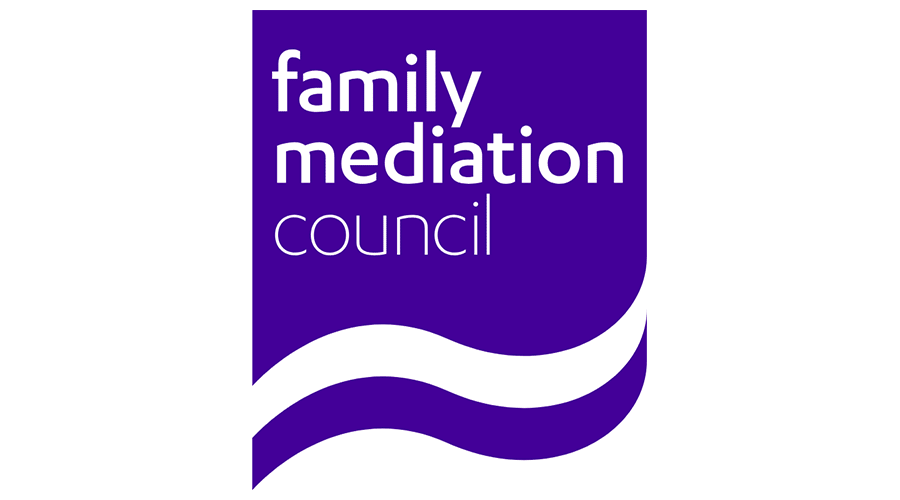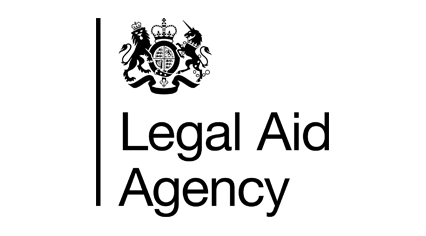Language matters and the family law ‘system’ often uses technical jargon. As a profession we’re trying to change this but it may take time. In the meantime, this is a guide to what some of it means.
Acknowledgement of service – a form which has to be filled in and returned to confirm receipt of an application (especially the divorce petition/ application)
Affidavit – a statement of facts, which has been sworn on oath to be true by the person making it, normally in front of a solicitor, also sometimes known as a sworn statement
Ancillary relief – the range of financial orders which the court has power to make on divorce
Answer – a response to a divorce petition/application – only necessary if the divorce is being defended.
Ante–nuptial agreement – see pre–nuptial agreement
Applicant – the person applying to the court for something
Application – a request to the court that it does something, including a request for a divorce now that the Divorce, Dissolution and Separation Act has come into force.
Application for directions for trial – a request that the court tell you what should happen next
Breach of an order – doing something specifically forbidden by a court order
Brussels II Revised – a treaty designed to make it easier to go to court within the European Union; it covers divorce, separation and annulment of marriage, parental responsibility, including residence and contact, enforcement of contact orders, and special rules concerning child abduction – cases in the UK that have been started since the Brexit transitional period ended are not covered.
Cafcass – Children and Family Court Advisory and Support Service – the organisation responsible for safeguarding and promoting the welfare of children involved in family court cases
Cafcass officer – an officer working for the Children and Family Court Advisory and Support Service – supposed to be involved from an early stage in parental disputes concerning children – sometimes required to report to the court on the child’s views and best interests
CAP – Child Arrangements Programme (Practice Direction 12B) – this is a form that sets out the outline rules of procedure where a dispute arises between separated parents and/or families about arrangements concerning children.
Certificate of entitlement to a decree – a document produced by the court to confirm that you are entitled to a divorce, giving a date for the grant of a decree nisi/conditional order
CEV/CETV – Cash Equivalent Value or Cash Equivalent Transfer Value – the type of pension valuation that has to be used by a court considering whether or not to make a pension sharing order
Child abduction – the illegal removal of a child from its home, in particular removal from one country to another – a removal may be illegal even if it is by a parent who lives with the child, if someone with the right to help make decisions about the child, such as the other parent, has not given their permission
Child arrangements order – (CAO) a court order setting out the arrangements for a child or children; also known as a section 8 order, because the making of such orders is governed by s.8 of the Children Act 1989
Child Arrangements Programme – CAP (see above)
Child of the family – a child who has been treated as a member of the family – usually natural children, but may include adopted children and step-children (although not foster children)
Child of the marriage – a child who is the child of both of the parties.
Child maintenance – regular payments made to support a child of the family
Child Maintenance Service – the government organisation responsible for running the child maintenance system in Great Britain
Child support – the original name for child maintenance, administered by a special government agency, not the courts, the amount of which is decided by applying a formula to the family situation
Children and Family Court Advisory and Support Service – Cafcass – the organisation responsible for safeguarding and promoting the welfare of children involved in family court cases
Children and family court reporter – an officer working for Children and Family Court Advisory and Support Service – Cafcass, responsible for safeguarding and promoting the welfare of children involved in family court cases – often required to report to the court on the child’s views and best interests
Civil partnership – a legal relationship originally solely for same-sex couples but now available to all couples, with all the characteristics of civil marriage
Clean break – an arrangement of a couple’s finances that allows the parties to separate without any further financial responsibility for each other
Conditional order – it confirms that the applicant has established the reasons for the breakdown of the marriage– it does not allow you to remarry as it is not the final decree; this is the new name for a ‘decree nisi’; a crucial stage in the divorce process which allows the court to make a financial remedies order.
Consent order – an order confirming an agreement between the parties
Contact order – (Child Arrangements Order) the former name for the arrangements for keeping a child in touch with a parent who is not living with them, normally visits, but may be indirect contact, such as letters, cards or presents
Contact activity directions – instructions from the court requiring a parent to take part in an activity that will promote a relationship with a child, such as counselling, parenting programmes, anger management classes, domestic violence perpetrator programmes or mediation information sessions
Contempt of court – any behaviour that shows disrespect for the court – in family cases it usually takes the form of a failure to obey a court order or to comply with an undertaking given to the court
Co-respondent – a person named in the divorce petition as having committed adultery with the respondent to the petition – adultery can now be alleged without naming the co-respondent
Costs – the legal expenses of a court case
Decree absolute – the final court order in the divorce process – it means the marriage is at an end, and the parties are free to re-marry. This is now known as the Final Order.
Decree nisi – the first court order in the divorce process – it confirms that the petitioner has established irretrievable breakdown of the marriage for one of the specific statutory reasons – it does not allow the parties to remarry as it is not the final decree. It is now known as a ‘conditional’ order
Directions – instructions from the court about what the parties, their lawyers, or any experts should do before the next court hearing
Directions appointment – a hearing at which the court considers what has happened so far in a case and issues instructions about what should happen before the next court hearing
Disclosure – documents or information relevant to the case that one person should provide to the other
Discovery – showing or giving the other party documents or information relevant to the case
Dissolution – the civil partnership equivalent of a divorce; the legal end of the relationship
Domestic abuse – abuse within a family context; not restricted to hurting the victim physically, but takes in a wide range of controlling behaviour that is harmful to the health and well-being of the victim. It can include financial, emotional, sexual or physical abuse amongst other things.
Domicile – the country which a person regards as their home country, whether or not they are currently living in that country – special legal status is associated with domicile; a person may be able to get divorced in their country of domicile, even if they have not lived there during the marriage
Duxbury fund – a lump sum payment intended to provide an income for a certain number of years, usually for the rest of the recipient’s life
Ex parte application – the old term for an application to the court in which only one side has the opportunity to put their case – now known as a ‘without notice’ application – and the other person may not be present
Enforcement order – an order imposing an punishment for breaching a court order
EEA – European Economic Area
Family provision – provision made for close family and dependents from the assets of someone, or the estate of someone who has died without themselves making reasonable provision – awarded by the court, at the court’s discretion
Family court reporter – another name for an officer working for CAFCASS
FDR – the common abbreviation for a financial dispute resolution appointment. This is an appointment where parties are given an indication of what the final outcome might be, and are encouraged to try and resolve it together
File/filing – bringing a document to the attention of the court, who will place it ‘on the file’, usually by delivery to the court
Final order – the final court order in the divorce process, formerly known as the Decree Absolute – it means the marriage is at an end, and the parties are free to re-marry
Financial dispute resolution appointment – the second court appointment under the procedure for obtaining financial relief – a judge looks at all the relevant information, including offers made by each side to assist the parties in reaching an agreement
Financial remedies or financial relief – the range of financial orders for families that the court has power to make – financial relief orders are specifically for people obtaining a divorce – another name for ancillary relief
First appointment – the first court appointment under the procedure for obtaining financial relief – a judge decides what information each side should produce and timetables the case
Form A – an application for financial remedies; this is one of the two forms that usually need to be signed by family mediators
Form C100 – an application for an order relating to a child; this is one of the two forms that usually need to be signed by family mediators
Form E – a sworn statement of property and income (this is a court form although it is often used for disclosure of assets without a court application having been made)
Freezing order – a special court order preventing someone from disposing of any of their assets – can apply to assets held abroad – some lawyers still use the old term, Mareva injunction
Habitual residence/habitually resident – the country in which a person is choosing to live
Hague proceedings – this relates to child abduction proceedings – a request for the return of a child to the country from which they have been taken
Harassment – a pattern of unwanted conduct that upsets, frightens or intimidates the victim – can take many forms, from frequent texts to late night visits
In chambers – a court hearing conducted in private, excluding members of the public (the press is usually entitled to attend, although reporting restrictions may apply)
Injunction – a court order that forbids or requires someone to do something
Interim maintenance – regular income payments by one party to another, awarded by the court during the proceedings, which will continue only until the final hearing
Interim order – an order made before the final decision in the case
Intestacy – the legal rules applied to the property owned by a person who has died without making a valid will
Issuing – the court’s stamping of a document to show that the fee has been paid, and that the document has gone onto the court file
Joint tenancy – a form of joint ownership of land in which both sides share the whole title to the property – if one dies the survivor will own the entire property
Judicial separation – a formal separation of a married couple, allowing the court to make many of the orders that can be made on divorce – without the marriage coming to an end
Jurisdiction – the authority of the court to make a decision on a particular issue
Lump sum – a payment of a sum of money
Maintenance – regular income payments to support a former spouse or civil partner
Maintenance pending suit – regular income payments by one party to another, awarded by the court during the proceedings, which will continue only until the final hearing
Matrimonial home – the house that a married couple, or civil partners, occupy together, as their main home
Non-resident parent – the parent who does not have their child living with them for the majority of the time
Notice – a formal notification of some step to be taken in a legal process
Notice of proceedings – formal notification that proceedings have been issued
Nullity – a declaration that no legal marriage has ever existed between the parties (unlike a divorce, which brings a legal marriage to an end)
Nuptial settlement – a trust for the benefit of one or both of the parties, created because of the marriage, or in some way related to the marriage, whether made before the marriage (pre– nuptial) or after the wedding (post–nuptial)
Parent with care – the parent with whom the child is living for the majority of the time
Parental responsibility – a parent’s rights, duties and responsibilities for their child – unmarried fathers do not automatically have parental responsibility unless (since 2003) their name is on the birth certificate
Parental responsibility order – an order recognising an individual not named on the birth certificate as the child’s legal parent
Parties to the proceedings – the people required to appear before the court, who are bound by the court’s judgment whether they appear or not
Penal notice – an explicit warning on a court order that breach of the order may result in committal to prison
Pension attachment/earmarking – a court order instructing pension trustees to pay a proportion of a pension to a former spouse when the pension is taken
Pension offsetting – taking a pension fund into consideration as one of the assets, to be ‘traded off’ against other assets, rather than interfering with ownership of the pension fund
Pension sharing – the division of a pension fund between two spouses. Requires a court order. Upon divorce, a proportion of a pension is debited from the pension fund and credited to a pension fund in the spouse’s name
Periodical payments – regular income payments – another term for maintenance
Petition – the old name for an application for a divorce or judicial separation
Petitioner – the old name for a person who applies for a divorce or judicial separation
Post–nuptial agreement – an agreement entered into after a marriage that sets out the way in which the parties will hold their assets while they are married, and sometimes to define what will happen if they divorce
Pre–nuptial agreement – an agreement entered into before a marriage that sets out the way in which the parties will hold their assets when they are married, and sometimes to define what will happen if they divorce
Prohibited steps order – prevents a parent from exercising parental responsibility for the child without the consent of the court in some specific respect
Property adjustment order – an order that one spouse or former spouse must transfer property to the other
Reporting officer – a Cafcass officer who has been instructed to prepare a report for a court hearing
Respondent – the spouse who receives and responds to the application for a divorce, or the spouse who receives and responds to the notice claiming ancillary relief or the person receiving and responding to an application concerning children
Separation agreement – a document describing the terms on which the parties agree to separate – it is not legally binding, and if it is contested may be considered by the court in deciding what is fair and very likely to be treated as a significant factor
Service – delivery of legal documents to either party or to their legal representative
Specific issue order – an order determining a specific question concerning a child, such as where they will go to school or whether they can move to a different part of the country or world
Statement of evidence – the evidence, oral and written, which a party proposes to put before the court
Statement of issues – a document that sets out the issues in the case, and explains the matters on which the parties disagree, and which they are asking a court to decide
Statement of means – a document setting out a party’s assets, income, debts and expenditure
Statement of open proposals – the suggestions offered by each party before the final hearing, explaining what financial orders he or she thinks the court should make
Statement of service – the form filed by the applicant to confirm that all documents have been properly served on the respondent
Stay – halting proceedings before the court has given a final judgment
Sworn statement – a statement of facts, whose truth has been confirmed, on oath, by the person making it; also known as an affidavit
Tenancy–in–common – a form of property ownership in which separate shares are agreed – if one of the owners dies their share will form part of their estate and will not automatically belong to the survivor
Testator – a person who has made a valid will
Undertaking – a binding promise to the court to do, or not to do, a particular thing; breach of an undertaking is the same as breach of an order, and can be punished by the court in the same way
Void marriage – a marriage which is not valid and cannot be recognised by the court
Voidable marriage – a marriage which is missing one or more of the normal elements of a marriage but which may be recognised by the court if it is just to do so
Warning notice – a statement attached to a child arrangements order, explaining that the instructions contained in the order must be obeyed, with a warning of the possible consequences of a failure to comply; similar to a penal notice
Without notice application – an application to the court in which only one side has the opportunity to put their case – used to be known as an ex parte application – many lawyers still use the old term
Without prejudice – a communication between the parties which forms part of a genuine attempt to negotiate on an issue and which cannot be used in court proceedings concerning the same issue – usually takes the form of an offer, but may include admissions








